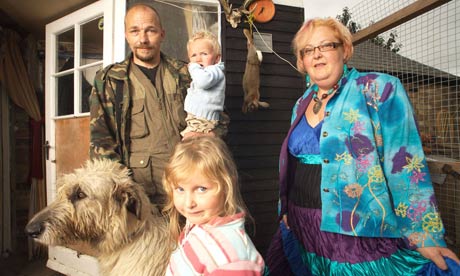
I was lucky enough to receive an invitation from
Ian Yorston, the Head of Digital Strategy at
Radley, to attend their annual sixth form conference, which was held today. The theme changes each year, and the 2009 topic was
The Media - A force for good?
The school had assembled a stellar line-up of speakers who debated the ins and outs of the media in a changing world.
Ian added live updates to the
blog he'd set up in the run-up to the event, and you can see his postings and the live comments here.
The first session focused on the theme: Opinion forming - to what extent can, or should, journalists influence opinion? Four speakers each gave their insight, followed by questions from the floor.
John Murray Brown, Ireland correspondent for the Financial Times, offered his views on changing revenue models and audience participation. His was a thoughtful, academic approach to the fundamental changes technology has brought to the newspaper industry. More importantly, he defined the function of journalists as expert witnesses, capable of analyzing complex issues and distilling them into meaningful context. John's historical journey through the maze of proprietorial ownership was a good reminder that power in the hands of the few can be detrimental to democracy. For me, it was the perfect start to the day, and the warm applause he received was a fair reflection of his considered and balanced approach to the craft of the journalist.
If Murray Brown was the thoughtful academic then the next speaker, Jim Gillespie, came straight at us with the blunt talking of someone who's spent a lifetime in the popular press. Jim's most recently been a news feature editor at the Daily Mail, and his approach was earthy, humorous, self-deprecating and full of the joyous cynicism I recognised from my own time in broadcast newsrooms. Jim reflected that research done when he worked at the Independent newspaper showed that leader columns, op eds, and the views of columnists tended to have the least effect at persuading readers. In other words, papers can have influence but the timing and extent of that influence can't be predicted. We do need someone to create and report the news, but, he seemed to be saying, a free press is essential to democracy more by the act of its existence, not necessarily for the power it believes it wields.
Having listened to two newspaper men, the next up to the podium came from broadcasting. John Ryley is Head of News at Sky, and his view was that convergence and multimedia accessibility means any of us can be citizen journalists; but it takes experience and training to do it properly. John touched upon the influence of social sites like Twitter, and deplored the fact that many local news outlets are reproducing PR stories they receive verbatim. For him, creating a strong press, capable of asking awkward questions, was essential. He used the Telegraph's breaking of the MPs' expenses scandal as an example where reporting the facts can have profound outcomes. John reminded us of Lord Northcliffe's observation that, 'News is what somebody, somewhere, wants to suppress; everything else is advertising.'
To end the first session we were treated to the thoughts of Lyse Doucet, a BBC award-winning journalist and correspondent. She reflected on her time in Afghanistan when it was the Russians taking on the locals, and the global challenges facing a public service broadcaster such as the BBC. Whether she was in Africa, Iraq or Israel, someone, somewhere, would accuse her of bias. Lyse gave us a sensitive and intellectual view of what life as a reporter for one of the world's best known news reporting brands is like. Lyse opened up a discussion on what should constitute a news agenda. Should there be good news? How far do audiences come to new agendas with their own partisan and biased views? I was reminded of the theories of Stuart Hall, although sadly there was no time to throw the notion of audience reception into the mix. Lyse finished with a warning that the need for journalists to multi-task as reporters, radio operators and photographers risked eroding their core activities of reflection and analysis; while turning them into process driven operatives.
The ensuing discussion from the floor showed that while many of the students present read more than one newspaper, a majority used online sources for news. It would have been good to find out what range of sources they do use - I suspect that if a poll had been taken, the resulting list might have been narrower than one would hope. I was reminded of the fact that an excess of information doesn't necessarily correlate with a corresponding ability to sift and analyse.
The second session of the day looked at Spinning and De-Spinning. John Momo runs a number of TV channels in Nigeria. Despite just coming off a plane, having been working at Harvard, he gave an insightful and meaningful analysis of the importance of a free press in all parts of the world. It was great to get a non-European perspective and it's vital that in a shrinking global village our students don't forget that this means we can reach out to the rest of the world. We shouldn't expect the rest of the world to come joyously skipping to our virtual front doors.
It's easy to forget that much of the world either isn't online, or blessed with a free press. John reminded us that, in the words of C.P. Snow, legendary editor of the Guardian, 'Comment is Free but Facts are Sacred.' John questioned the laziness of much of the journalism conducted today, and was a powerful advocate for strong journalistic endeavour to ensure the truth gets heard.
Jonathan Hill was a fascinating speaker. He ran John Major's election campaign in 1992, and having served in a variety of roles in Number 10 Downing Street, now advises corporate clients when their reputations are on the line. His view was a soothing one of mis-represented individuals being hounded by the press. He had helped Eton College defend its reputation when it was alleged Prince Harry had received help with Art coursework, and he had helped Oxford University when it rejected the Medicine applicant
Laura Spence, who had come from a State school. Having spent my career on the other side of the fence, I was impressed with Jonathan's ease at making the unpalatable seem tasty. Then I was reminded why I decided to quit the media and become a teacher - dealing in people's fate via the strange arena of the TV circus can be injurious to one's conscience.
I needn't have worried, as the next speaker, the writer and journalist
Tom Bower, soon put things to right. Tom's written unauthorised biographies of Maxwell, Murdoch and Branson, inter alia. He's also written the award winning
Broken Dreams, about corruption in football. John spoke softly, but his words were barbed. He warned us against complacency and reminded us that standing up to the Establishmemt requires luck, tenacity and an iron will. His examples of how the great and good have tried to gag him and failed made for entertaining listening; but they were a timely reminder that 'truth can be manufactured' and that in a world awash with spin across numerous channels. finding the real truth can be an arduous task.
After lunch came the main keynote speech. It was an absolute privilege to listen to documentary film maker Paul Watson talk about the craft of the empathetic storyteller, who will record and assemble snapshots of reality in order to create a narrative about contemporary life. He showed us a showreel of some of his most famous work, including the Family, Sylvania Waters, and Rain in My Heart.
Paul spoke with conviction about the need for TV to produce intelligent stories, rather than inconsequential sound bites. He wasn't against shows like the X Factor per se, but argued that TV's power to hold a mirror up to society was an important role. He was delighted that he and a clutch of other traditional documentary makers have just been asked into Channel 4, to discuss some heavyweight projects. He didn't elaborate on what they were, but I'm sure the end result will make gripping content.
Paul re-iterated the notion that while anyone can be a film maker now, it takes time to reflect on the story, and practise the art of becoming invisible during filming. His clarion call was for film makers to be subversives, and not to shy away from the stories of real people. It was a timely reminder that much of what consumes the media's interest nowadays is celebrity driven. I was greatly influenced by Paul's documentaries, and in part it was his work that helped me decide that was what I wanted to do when I left university. Interestingly, when a student asked Paul who his influences had been in documentary, he replied 'No-one.' However, he had been influenced by the film makers of the French Nouvelle Vague. It was a revealing insight at the end of a fascinating talk.
Finally, a lively debate ensued, in which students had been split into different groups, where their task had been to focus on different areas of the media: fashion, gender, science, entertainment, celebrity and so on. What struck me most about this final element was firstly the ability of many students to articulate a reasonably media literate view of the world around them; and secondly, how terrifyingly willing they were to allow newspapers and TV channels to be owned by one individual or company. The most common refrain was that since 'you can read another paper, or watch another channel, it doesn't matter if Murdoch et al suck up more media outlets.' There was a strong rebuttal of these views, both from Ian Yorston, who did a splendid job chairing the debate and guiding the discussion, but also from a minority of students who could see the inherent dangers in a monopolised press. Ian's closing comments referred back to an observation from a female student, that only one of the day's speakers had been a woman. Perhaps, Ian reflected, the real challenge in the media today was gender imbalance, in terms not just of practitioners, but also the stereotypical divisions that existed in the representation and coverage of stories.
It would have been great to have more time, to speak, to discuss, and to reflect. Nonetheless, this was a wonderful example of both the influence of the media and the importance of bringing young people into contact with today's opinion formers; so that they might learn what tasks lie ahead for them in years to come.











































